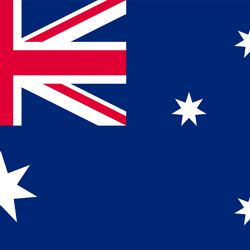Emigrating can be an expensive business, as after the initial move there are other considerations, such as bills and taxes that need to be paid as you settle into your new life.
Thankfully, not all of these costs have to be taken head-on, so take a look at our quick guide to saving money at any stage of the emigration process.
Saving money before the move
Even before setting off for your new life overseas, there are a several ways to limit unnecessary spending during the big move.
First of all, decide exactly when you want to move abroad. Settling on a date is a big decision, but if you plan ahead then you might be able to make significant savings.
This is because the moving process will invariably include the transfer of money, as you convert pounds into the local currency of your destination.
Exchange rates change on a minute-by-minute basis, however, so there’s no guarantee that they will be favourable if you decide to transfer on moving day.
With that in mind, there is always the option of taking out a forward contract with a currency broker.
Forward contracts enable you to ‘lock in’ a favourable exchange rate for up to a year. This means that if exchange rates worsen close to your moving date, you’ll still be able to transfer funds at the agreed-on better rate.
Forward contracts can end up saving you thousands of pounds and act as a safety net against the risk of the pound devaluing.
Another more physical way to save on a move abroad is to take a good look at your belongings and decide what you can part with.
Shipping costs can quickly add up, so a good way to make savings is to sell off things that won’t fit in your new home.
Furniture is the main focus, as cumbersome and heavy pieces can add onto your overall shipping costs.
With the shipping process itself, there are a few ways to save on costs – sharing shipping container space can cut costs as a part-filled container is usually more expensive.
Additionally, doing a DIY removal with a hired van can also cut moving costs. Given the stress involved, however, this is best left to veteran movers!
How to save money after you arrive
Once the move is complete and you’re settling into your new lifestyle, there are further ways to save money.
If you need to regularly transfer money from the UK to a bank account in your new country, it can cost less in the long-term to use a regular transfer scheme.
This service, also offered by currency brokers, is a way of automatically transferring a set amount of funds on a regular basis.
Regular transfers via banks can include fees on every transaction, which can add up to a sizable amount over the course of a year.
When using a regular transfer scheme with a currency broker, however, you can avoid such fees and potentially save thousands while the service is active.
Depending on where you’ve moved to, tax rates might be lower than in the UK.
In many countries, you can decrease your tax exposure by becoming a national resident for tax purposes.
In Australia, for example, if you live and work in the country, you can benefit from a lower rates of income tax compared to being merely a ‘foreign resident’.
This doesn’t involve giving up your UK citizenship, so you can financially benefit while retaining your national identity.








